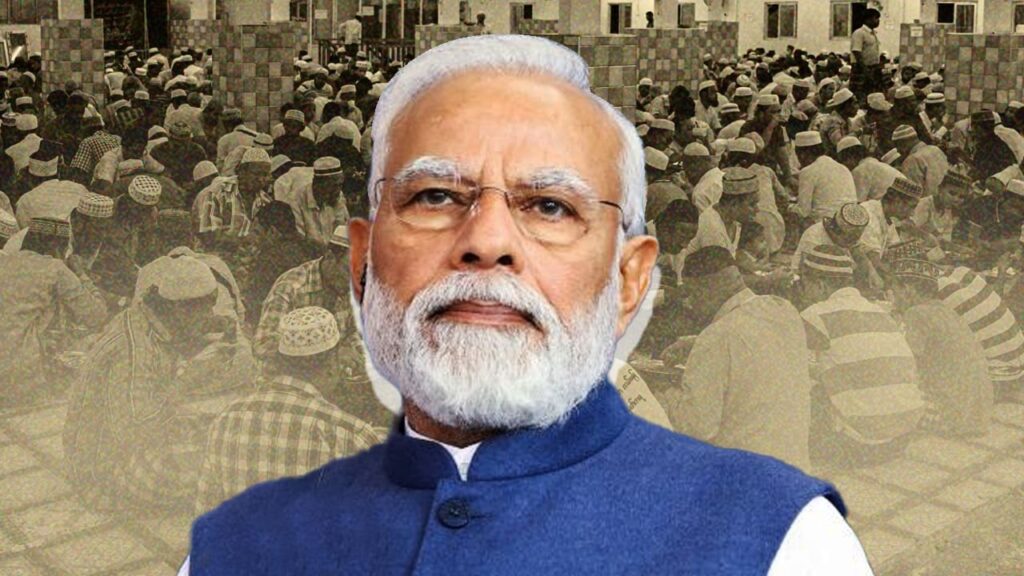Strategic Moves by BJP in Jammu and Kashmir Assembly Elections
The Bharatiya Janata Party (BJP) is making significant efforts to form a government in Jammu and Kashmir as the 2024 Lok Sabha elections approach. Following their decision not to contest any seats in the Kashmir region during the parliamentary elections, the party has now devised a bold political strategy for the upcoming assembly elections. The BJP has announced its first list of candidates for the Jammu and Kashmir assembly elections, revealing a surprising allocation of more than half of the candidate tickets to the Muslim community aimed at blooming the ‘lotus’ (BJP’s symbol) in the valley.
Candidate Selection and Muslim Representation
On Monday at 10 AM, the BJP released a list of 44 candidates for the Jammu and Kashmir elections, which it later retracted. The party has since reissued a revised list, announcing candidates for 15 of the 24 assembly seats in the first phase. Notably, eight Muslim candidates have been nominated, constituting over 50% of the candidates. Selected Muslim candidates include:
| Constituency | Candidate Name |
|---|---|
| Pompor | Engineer Syed Shoqat Gaiour |
| Rajpora | Arshid Bhatt |
| Shopian | Javed Ahmad Qadri |
| Anantnag West | Mohammad Rafiq Wani |
| Anantnag | Advocate Syed Wajahat |
| Sriguftara Bijbehara | Sofi Yusuf |
| Indravar | Tariq Keen |
| Banihal | Saleem Bhatt |
In addition, the BJP has nominated seven Hindu candidates, including one Kashmiri Pandit, to balance representation. The Hindu candidates are:
| Constituency | Candidate Name |
|---|---|
| Kishtwar | Shagun Parihar |
| Doda | Gajay Singh Rana |
| Shanagus Anantnag | Veer Saraf |
| Pader Nagseni | Sunil Sharma |
| Bhaderwah | Dilip Singh Parihar |
| Ramban | Rakesh Thakur |
| Doda West | Shakti Raj Parihar |
A Thoughtful Strategy Behind Candidate Decisions
The BJP’s decision to field Muslim candidates is not arbitrary; it is part of a carefully constructed political strategy. Traditionally, the BJP’s stronghold has been in the Jammu region, where they secured both Lok Sabha seats in the last election. However, recognizing the political significance of Muslim voters in the Kashmir region, they have chosen to nominate Muslim candidates in constituencies characterized by a Muslim majority. Their earlier attempts in the Kashmir local body elections saw some success, which reinforces this strategic approach.
Prospects for BJP in the Valley
Historically, the BJP has struggled for support in the Kashmir region compared to Jammu. Yet, experts suggest that the party’s cadre has seen substantial growth in recent years. Their most notable performance was during the 2014 assembly elections when they emerged as the second-largest party and formed a coalition government with the People’s Democratic Party (PDP), winning 25 seats out of 87.
Key Election Issues for BJP
The BJP aims to secure approximately 35 to 37 seats out of the 43 in the Jammu region, while also targeting 10 to 12 seats in the Kashmir constituency. They are leveraging issues such as the abrogation of Article 370, the region’s development narrative, and the dismantling of dynastic politics to win over voters. The BJP is presenting a clear choice: elect them for continued improvement or face setbacks by returning to traditional parties like the National Conference and PDP, which are campaigning for the restoration of the state’s special status.
In conclusion, the BJP’s recent candidate selection reflects an ambitious strategy aimed at breaking traditional voting patterns in Jammu and Kashmir. By fielding a diverse range of candidates, especially from the Muslim community, the party hopes to resonate with a broader electorate and enhance its prospects in the upcoming elections.
